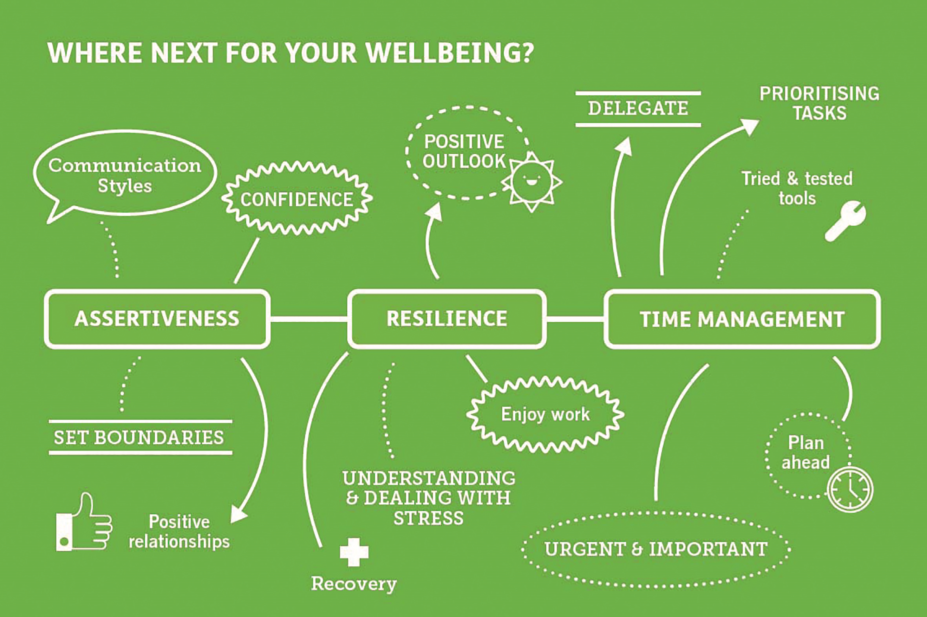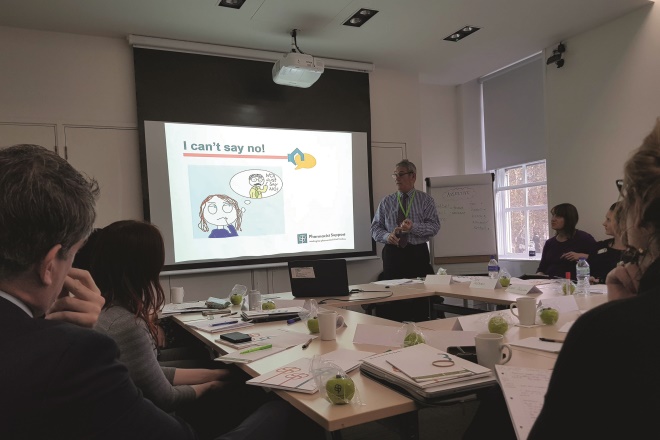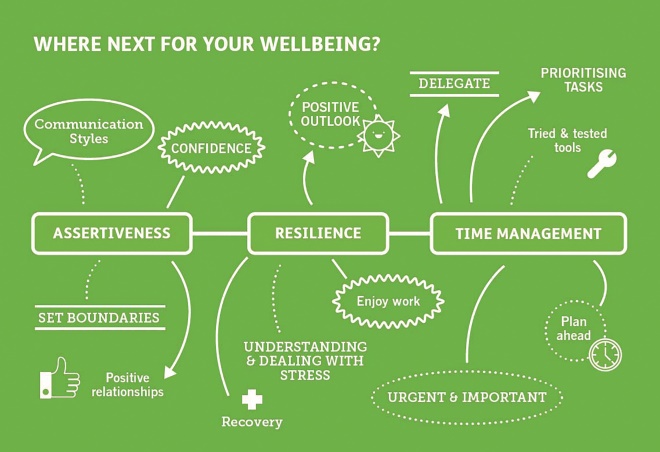
Courtesy of Pharmacist Support

Courtesy of Pharmacist Support
Pharmacist Support offer free ‘wellbeing workshops’ for pharmacists
“I can’t say no. It’s not my place to speak up.”
If this statement feels rather close to home, you are not alone. Many pharmacists struggle to assert themselves, perhaps through lack of confidence or fear of being seen as “difficult”.
To address this, Pharmacist Support (PS), an independent charity working for pharmacists, runs an ‘Introduction to Assertiveness’ workshop as part of a series of four wellbeing workshops, which also cover time management, stress management and resilience and a general introduction to wellbeing.
During a taster session held in London on 30 November 2017, David Humphrey, wellbeing officer at PS, and John Buckley, a former headmaster who now works alongside PS to deliver wellbeing workshops, reminded attendees that assertiveness is healthy. It is not the same, he said, as aggressiveness: true assertiveness helps to build morale and provide the best customer experience.
“Some people are brought up to believe that it’s not for them to say what they really think,” Buckley said.
But this passivity can lead to conflict in the long run. An assertive attitude – as opposed to a passive or aggressive attitude – respects the rights and feelings of others, including one’s own rights and feelings.
Assertiveness, he said, helps a workplace to perform at its best by allowing everyone’s views to be heard, and for challenging scenarios to be addressed with clarity and openness.
“Pharmacists have to deal, on a daily basis, with colleagues, patients and members of the multidisciplinary team,” Buckley said. In all these cases, he added, differences of opinion may arise, but by cultivating a healthy level of assertiveness, pharmacists can develop confidence in explaining their opinions and decisions.

Courtesy of Pharmacist Support
Pharmacists can receive advice on assertiveness, resilience and time management
Time management, too, can often be an issue for pharmacists. But not in the way you might think.
“Whilst pharmacists are good at planning work time,” Buckley said, “they can be less good at ring-fencing leisure time for themselves”. Keeping days off free to meet friends, or just have some “alone time”, is not something to feel guilty about: it’s an essential break from a high-pressure workload.
In terms or work planning, though, PS offer some useful advice to those who may struggle. Some of this comes back to assertive: “learn to say ‘no’, clearly, and explain why”. Practical tips include keeping a weekly diary of workplace activity, so you can highlight potential busy periods and plan your workload around them. Buckley recognises that community pharmacists in particular cannot always delegate tasks during busy periods, but he points out that “it’s not selfish to take a break”.
If you are of the many people to live by ‘to-do’ lists, Buckley suggested adding to this list an estimation of how long each task will take, then, tackle the most challenging task right away – a tactic known as “eating the frog first”, based on a quote attributed to Mark Twain: if you start the morning by eating a frog, you have already dealt with the worst thing that can happen that day. (That said, a French attendee remarked that, in her country, eating a frog is not considered the worst thing that can happen in any given day – but the point stands.)
Pharmacist Support’s wellbeing workshops are free, but a minimum of 15 attendees is required. For more information or to book a course, contact David Humphreys at david.humphrey@pharmacistsupport.org or on 0161 441 0811.
You may also be interested in

Calling the shots: the pharmacists combatting vaccine misinformation

Embedding quality improvement in pharmacy practice: a departmental strategy at University Hospitals of Derby and Burton
